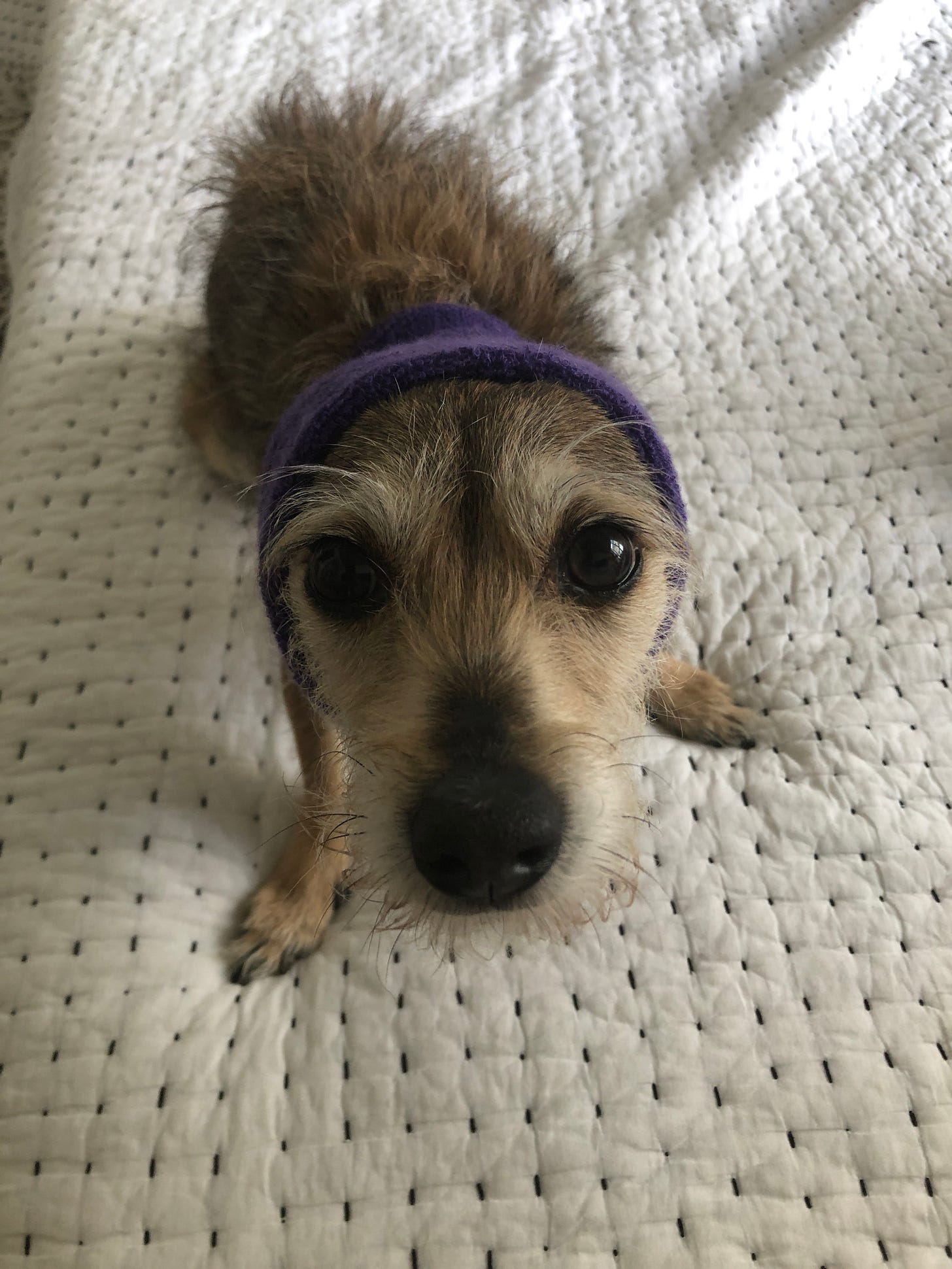100. 🌟 reflection + gratitude 🌟
thinking about 100 letters to you
Hello, and happy Monday.
This one’s coming a day late (my apologies)! Have been dealing with other stuff. 😅 Thank you for understanding. <333
✏️ Still processing.

It’s a big deal for me that I got to this point—100 newsletters of my writing out in the world.
When I first started writing tiny driver, I didn’t feel like I had a voice. Many parts of me were scared to say anything online because I was afraid. I was afraid in the abstract sense—just general fears of sharing thoughts into a void where literally anyone could find me and my writing. But, more specifically, I was afraid that this newsletter would somehow lead me to lose out on academic jobs or opportunities.
I grew up during the late 90s and early 00s. This was when folks in my community were experiencing the early ages of the internet for the first time in the comfort of their homes. As a result, elementary and middle school assemblies taught me that the internet was a scary space more than it was a space of possibility. One of the first pieces of advice I remember receiving during these events was: don’t put your real name as your email address. (How funny that seems now!) We were taught that the internet was the new wild, wild west that came with serious consequences. It is interesting to think that there wasn’t even that much evidence at the time in the way of these negative consequences when they were presented to us—only fabricated stories of the ultimate catastrophe.
Call it my proclivity toward being a goody-two-shoes or my deep-seated gullibility as a child, but I have managed to bring these deep-seated fears of “being online” into my adulthood. Throughout grad school, I yearned to write and to write publicly. But, I always felt that nagging part of myself telling me that it wasn’t a good idea—that I wasn’t yet an “expert,” that I’d be embarrassed in the future by what I’d written, that someone would find it and have a million things to say about why I was wrong, wrong, wrong. Compounding this was the notion that I should only be writing academically—to write publicly meant wasting my time and effort on something that wouldn’t really count at all for my career. In fact, it seemed that all it could do was detract from the “seriousness” with which I was meant to pursue academia.
So I kept my desire to write at bay. At the time, my fear was much more powerful than my desire.
And then the pandemic happened. And then I graduated. And then I started to question why—despite the degree in hand, despite the job I had managed to get, despite all the work I had put in to become an “expert in my field”—I was still scared to write. Still scared to have people read my words in any capacity other than those that have been peer-reviewed, sifted through, thought over for years and years and years.
I began tiny driver as an effort to combat this thinking. And while I’ve stated that I’m “consenting to learn in public,” it is at times a bit scary to do so.
This is a space that (despite my best efforts) is messy—figuratively and literally. It holds complicated feelings about the path that I’ve chosen for my life. It holds ideas and thoughts about other texts that I’m still grappling with for my own work. It holds typos and sentences that I thought were lyrical but ended up being run-ons.
Despite the mess, I think that this practice has done more for my academic writing and my mental health than I can even begin to imagine. The act of pressing “publish” alone—week after week—has exposed me many times over to my fear of writing publicly, and has slowly been replaced by desire and joy. The desire to write and keep writing, and the joy of sharing this journey with a community of folks who are also kind and curious.
I feel an immense sense of gratitude to you, the reader. Thank you for following along, for opening these little letters, for writing back to me, for reading. Thank you for continuing to help me unlearn the
🌀 Still consuming.
Very important info from Hugh Ryan above! 😊 🌈
A big thank you to Mirya Holman for her most recent newsletter on how she sets academic goals and plans for the coming year.
Edna Bonhomme on novels that think through epidemics and pandemics in our society. (Plus a short and intriguing reading list at the end!)
“I’m proud of the space I’ve made for myself, and yet I feel a nudge of guilt for living somewhere that looks devoid of any indicators of where I’m from. There are days when I wonder how homogenizing my space is a larger reflection of how as I grow older, I’m also getting further and further from my parents’ cultural roots.” Ian Kumamoto on embracing a minimalist aesthetic.
“’I’ve been on the internet for the last 10 years and I don’t know if I like what I like or what an algorithm wants me to like,’ Peter wrote. She’d come to see social networks’ algorithmic recommendations as a kind of psychic intrusion, surreptitiously reshaping what she’s shown online and, thus, her understanding of her own inclinations and tastes.” On algorithmic anxiety.
📖 Book club corner.
Friends! WE HAD OUR VERY FIRST TIE?!?!?! Wowowow. I guess I’m the tie breaker, so…….
August’s book club pick is At the Center of All Beauty by Fenton Johnson! I’m so excited, and a big thank you to Devin for choosing this month’s books and facilitating our meeting at the end of the month! You can purchase the book here and find meeting details below.
Here’s the event info:
Date & Time: Tuesday, August 30 @ 5PM PST/8PM EST
Registration Link!
Suggested Donation (for those able to donate): $3-10 through Paypal or Venmo (@idyalz) (A note that 100% of donations will go to Devin!)
If you are interested in facilitating a book club and have been to more than two book club meetings, feel free to reach out to me!
You can learn more about the tiny driver book club here!
🐶 A pup-date.
Plz tell me why Girlie looks like a little seal in her happy hoodie:
As always, thanks so much for reading through, and I'll see you in the next one!
Warmly,
Ida






Well done indeed, 100 newsletters is an amazing thing. 🥳
Congrats on 100! You’re amazing!